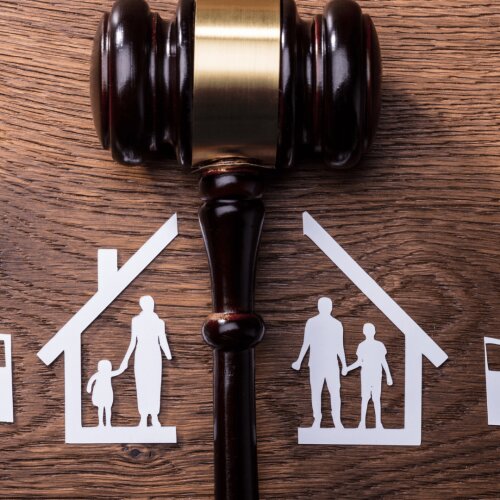Best Child Visitation Lawyers in Brasília
Share your needs with us, get contacted by law firms.
Free. Takes 2 min.
Free Guide to Hiring a Family Lawyer
List of the best lawyers in Brasília, Brazil
About Child Visitation Law in Brasília, Brazil
Child visitation law in Brasília, Brazil, is designed to protect the rights of children and maintain their connection with both parents after separation or divorce. Brazilian law emphasizes the best interests of the child, ensuring they have regular and meaningful contact with both parents, even if one does not have custody. Visitation arrangements, known as "direito de convivência," can be set through mutual agreement or determined by the court if parents cannot agree. The courts in Brasília generally encourage shared parenting and arrangements that foster the emotional well-being and development of the child.
Why You May Need a Lawyer
Many situations lead parents or guardians to seek legal assistance with child visitation matters. Common reasons include:
- Disagreements following separation or divorce regarding access schedules - One parent preventing or restricting visitation unlawfully - Concerns about the safety or welfare of the child during visits - Requests for changes in the visitation schedule due to relocation or changes in work schedules - Grandparents or extended family members seeking visitation rights - Enforcement of court-ordered visitation agreements - Complex family situations involving abuse allegations, parental alienation, or international travel - The need for formal agreements to be legally recognized - Addressing non-payment of child support that may interfere with visitation - Mediation or negotiation breakdowns that require court intervention
A lawyer can offer advice, draft or review visitation agreements, negotiate on your behalf, and represent you in court if needed.
Local Laws Overview
Brasília follows federal legislation under the Brazilian Civil Code and the Statute of the Child and Adolescent (Estatuto da Criança e do Adolescente - ECA). The main legal principles include:
- The child's best interest is the primary consideration in all decisions - Both parents have the right and obligation to participate in their child's upbringing, regardless of custody - Visitation agreements should be fair and allow the child to maintain relationships with both parents and, in some cases, other relatives - Visitation schedules can be decided through mutual agreement or imposed by the judge if parents disagree - Courts may restrict or supervise visitation if there are concerns about the child’s safety - Modifications to visitation can be requested if circumstances change - Failure to comply with visitation agreements may result in legal consequences, including fines or changes to custody - Brasília provides specialized Family Courts (Vara de Família) to handle these cases efficiently and sensitively
Frequently Asked Questions
What is child visitation?
Child visitation is the right of a non-custodial parent or other relatives to spend time with the child according to a schedule or agreement, ensuring continued contact and relationship after the parents' separation.
Who determines the visitation schedule?
The visitation schedule can be established by agreement between the parents or, if they cannot agree, by the judge in Family Court based on the child's best interests.
Can grandparents or other family members request visitation?
Yes, Brazilian law allows grandparents and, in some cases, other close family members to request visitation rights if they are deemed beneficial for the child.
What happens if a parent refuses to allow court-ordered visitation?
The parent denying visitation can face legal consequences, such as fines and possible modification of custody. The affected parent can file a complaint in Family Court for enforcement.
Can the visitation arrangement be changed?
Yes, either parent can request a change in the visitation arrangement if there is a significant change in circumstances or if it serves the child's best interest.
Does not paying child support affect visitation rights?
No, visitation rights and child support obligations are legally independent. A parent cannot be denied visitation for failing to pay child support, and vice versa.
Can visitation be supervised?
Yes, the court may order supervised visitation if there is a concern for the child's safety or well-being. The supervision is typically conducted by a social worker or at a designated location.
What should I do if I feel my child's well-being is at risk during visitation?
You should seek immediate legal assistance and inform the Family Court. The judge can review and modify the visitation arrangement to protect the child.
How long does the visitation process take in Brasília?
The timeline depends on whether the parents reach an agreement or if legal proceedings are necessary. Agreements can be formalized quickly, while court cases may take several months.
Is mediation recommended in visitation disputes?
Yes, mediation is encouraged before resorting to court. It helps parents reach a mutually acceptable arrangement and can be faster and less stressful than court proceedings.
Additional Resources
If you need more information or support regarding child visitation in Brasília, consider these resources:
- Vara de Família: Family Courts specializing in family law, including visitation - Defensoria Pública do Distrito Federal: Provides free legal aid to those who cannot afford a lawyer - Ministério Público do Distrito Federal e Territórios (MPDFT): Monitors and protects children's rights - Conselho Tutelar: Local body that helps protect children's rights and can intervene in visitation issues - Private family law attorneys: Specialize in child visitation, custody, and related matters
Next Steps
If you are facing a child visitation issue in Brasília, consider the following steps:
1. Try to reach an amicable agreement with the other parent, prioritizing the child's well-being. 2. Document all communications and any visitation problems you encounter. 3. Seek information and guidance from the local Family Court or Defensoria Pública if you need legal advice. 4. Contact a qualified family law lawyer experienced in Brasília's visitation procedures, especially if an agreement is not possible. 5. If you feel the child is in danger, immediately consult authorities or the Conselho Tutelar. 6. Attend mediation or court hearings punctually and provide all requested documentation. 7. Always keep the child's best interests and rights at the center of any decision or negotiation.
Professional legal advice is essential to ensure your and your child's rights are fully protected throughout the visitation process.
Lawzana helps you find the best lawyers and law firms in Brasília through a curated and pre-screened list of qualified legal professionals. Our platform offers rankings and detailed profiles of attorneys and law firms, allowing you to compare based on practice areas, including Child Visitation, experience, and client feedback.
Each profile includes a description of the firm's areas of practice, client reviews, team members and partners, year of establishment, spoken languages, office locations, contact information, social media presence, and any published articles or resources. Most firms on our platform speak English and are experienced in both local and international legal matters.
Get a quote from top-rated law firms in Brasília, Brazil — quickly, securely, and without unnecessary hassle.
Disclaimer:
The information provided on this page is for general informational purposes only and does not constitute legal advice. While we strive to ensure the accuracy and relevance of the content, legal information may change over time, and interpretations of the law can vary. You should always consult with a qualified legal professional for advice specific to your situation.
We disclaim all liability for actions taken or not taken based on the content of this page. If you believe any information is incorrect or outdated, please contact us, and we will review and update it where appropriate.










